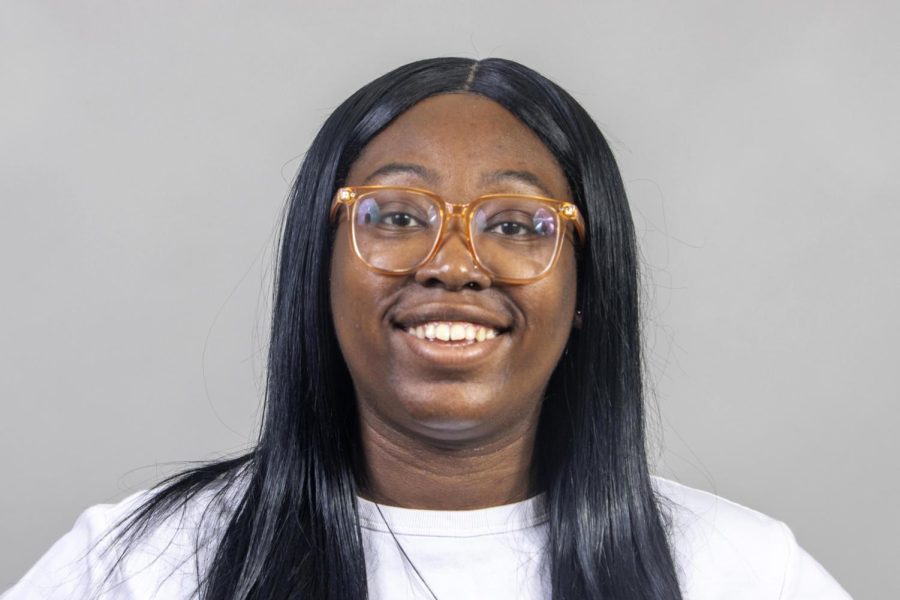COLUMN: The rise of LGBTQ+ representation in media
Kyla Moton is a junior English major and can be reached at 217-581-2812.
September 29, 2022
Representation in media is essential. Whether viewers are 5 years of age or 60, it is so important to see people that are just like you in the books we read, the movies we view and the television shows we watch.
My first experience with representation was when I was very young. “Akeelah and the Bee” was a movie that came out when I was around 4 or 5 years old. I was always into words, and around the time this movie came out, I was in kindergarten preparing for our spelling bee.
Akeelah was played by Keke Palmer, who has graced television and movie screens for years. Seeing a little black girl be successful in a spelling bee inspired me to take the spelling bee seriously.
I ended up winning, even though I refused to study the list of words that they asked us to spell. But, besides representation in terms of race, there are many categories of intersectionality that can and should be used to represent various groups of people in the media that we all consume.
One specific group of people being the LGBTQ+ community. If not for representation, then for the simple fact that members of the LGBTQ+ community exist and deserve to be seen and heard.
Netflix released the three-part movie series based on the R.L. Stine books title Fear Street. One of the main characters, Deena, identifies as a lesbian and is in a relationship with another character, Sam. For me, this was one of my first times seeing an LGBTQ+ identifying character in a show or movie that I was watching.
It was still an amazing movie. A lot of times, people do not see past their hatred or distaste for certain minority groups and take issue with said minorities being shown in movies and television.
The most recent example being the new “The Little Mermaid movie” starring singer and actress Halle Bailey. This has been a topic that people were debating for years, even when it was first rumored that Bailey would be playing Ariel.
Not everyone was excited that Bailey would be playing the live action Ariel. People can make up whatever excuse they would like about why they feel so much hatred and disgust about it, but the underlying problem here is racism.
They don’t want to see an African American woman play a fictional character whose story has no cultural significance.
The same thing can be said about people who take issue to seeing LGBTQ+ members in media as well. In the long running children’s cartoon “Arthur,” Arthur’s teacher, Mr. Ratburn, invited his students to his wedding for them to discover that he is marrying another man.
The episode goes on to explain to Arthur, his classmates and the viewers watching that it is okay to love whoever you choose to love. There was no “agenda” being pushed whatsoever.
But, in most of the children’s romance movies or princess movies, a man and a woman, or a boy and a girl, can kiss on screen multiple times and it would be just fine for children to watch.
The obvious divide in what is seemingly fine for children to watch when it comes to children’s media and what is not okay for children to consume in terms of media can be chalked up to homophobic tendencies.
There are books discussing the LGBTQ+ community that have been banned from schools, churches and households for mentioning or discussing the LGBTQ+ community.
When, in reality, these books are there to help educate children on what it means to be gay, lesbian or even transgender. Instead of sheltering ourselves and our children from this topic, we should be educating them.
We’re always taught to treat everyone we come across with the same amount of respect that they give us, but we all know that this is not something that everyone abides by.
It all starts at home, yet again.
The representation of LGBTQ+ community members has increased over the years, and this increase in representation allows viewers to see that LGBTQ+ members are no different from anyone else, so it’s essential for everyone to treat each other in a respectful manner.
Kyla Moton is a junior English major. She can be reached at klmoton@eiu.edu or 217-581-2812.




































































